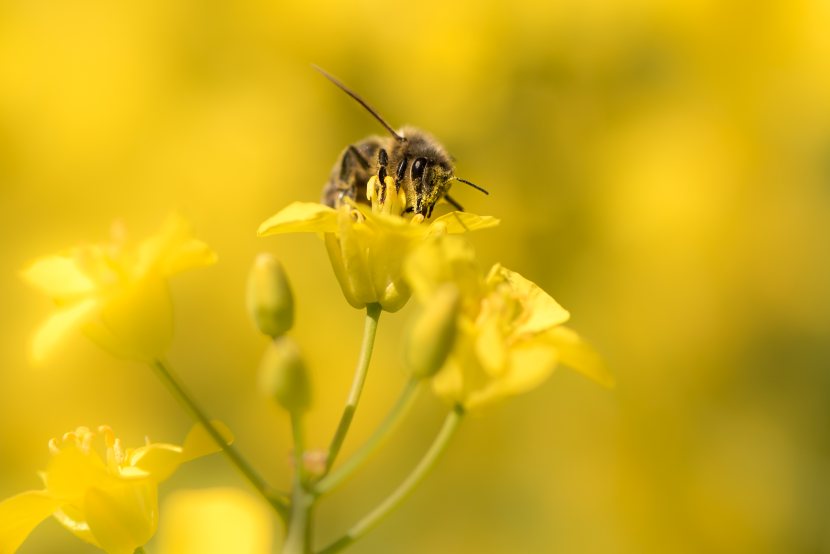
New research has suggested neonicotinoids damage bee socialization and learning skills.
The study, published in the Journal of Apicultural Research, explores the effects that neonics may have on social behavior and learning in honey bees.
In one paper, researchers explore the effect of the neonicotinoid thiacloprid on social interactions among honey bee workers.
They measured interactions in experimental groups of workers to assess the effects of thiacloprid on social network structure, and the amount of food exchanged among worker individuals.
They found that bees fed with thiacloprid significantly reduced their social interactions, suggesting that foraging bees that encounter high doses of insecticide in the field may be less likely to recruit others to these nectar sources, but they also exchanged more food to other group members, which resulted in a dilution of the contaminated food.
The study suggests that although thiacloprid may act to interfere with social network structure, it could also play a role in the dynamics of disease transmission in the colony if pathogens are transmitted via food exchange.
Imparied learning
In another paper, researchers look at the effect of exposure of honey bee larvae to the neonicotinoid thiamethoxam and the honey bee brood disease American foulbrood on mortality and cognition.
They exposed or co-exposed honey bee larvae to American foulbrood and to sub-lethal doses of thiamethoxam.
They found no additive effect between the two stressors on larval mortality, but the results do provide the first evidence of impaired learning and memory in adult bees that had been fed thiamethoxam during the larval stage.
They found no alterations in learning and memory in bees after infection with American foulbrood at the larval stage.
Science Director at The International Bee Research Association (IBRA) Norman Carreck said: “These new papers are significant because they fill in some gaps in our knowledge of the effects of neonicotinoid insecticides on social behavior and learning in honey bees.
“As with previous studies, the question remains as to whether bees experience these effects in the field.”
Neonicotinoids in the news
The effects of neonicotinoid insecticides on bees has been widely covered in the news recently.
The study comes as news that a Conservative MEP failed to stop a complete EU ban on neonicotinoid pesticides.
It prompted Labour’s Shadow Environment Secretary Sue Hayman to write an open letter to Defra secretary Michel Gove for clarification on the government's position on neonicotinoids.
However, France is one of the first EU countries to go ahead with a complete ban. The French Prime Minister has said the country is set to go-ahead with a neonicotinoid pesticide ban, which is due to come into effect in 2018.
But some farming groups criticised the move saying the pesticides are 'vital' in protecting the UK's crops from pests.
The NFU has said a blanket ban would have devastating consequences on outdoor crops, and the effect this would have on farming businesses.
Rothamsted Research said production of UK crops is at risk if neonicotinoids are more widely restricted or banned completely.
The call comes in response to European Commission proposals to widen current neonicotinoid restrictions to ban all uses on field-grown crops, extending its current restrictions to include non-flowering crops.
